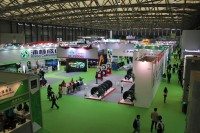RMA asks government to address effects of low cost imports on retread industry
Several representatives of the Retread Manufacturers Association (RMA) and the tyre industry have met with Department for Business ministers to discuss the impact of low-cost new tyres on the UK and European retreading industry, and its direct implications for employment in the retread tyre industry, the tyre recovery programme and the environment. The association said it would “press for urgent measures” to address what it argues is evidence of ‘dumping’.
The RMA said that the comparison of the cost of raw material and the retail price of the Asian imports shows dumping is taking place. Materials for a truck tyre, which typically weighs 60kg, cost approximately £1.16/kilo, giving an overall total cost of £70. A tyre retailing in the market at around £73, used as an example by the RMA, leaves a margin of just £3 for manufacturing, transportation, import duty and profit; an impossibly low amount for a commercial operation to sustain without significant subsidies from a backing organisation or government. Therefore the RMA wants an intervention “to allow the UK retread industry to compete on an equal footing with the cheap and subsidised imports flooding in,” it stated.
“Without intervention, the future of 2,500 employees across the UK’s industry is under threat,” the RMA added. “Without a successful domestic retread industry, three times more waste truck tyres will be disposed of across the UK, putting a an overwhelming strain on the tyre recovery programme.”
Future of 2,500 employees ‘under threat’
At the meeting, the RMA told government representatives that 60 per cent of the €1 billion the industry generates across the European Union is through SME businesses, which are particularly vulnerable to the impact of dumping practises.
Patrick O’Connell, chairman of the RMA, who led the tyre industry deputation to ministers, said: “We are calling on the British Government and European Commission to take immediate action on the ‘dumping’ of tyres into the UK and European markets. Our data supports the view that without intervention, the future of 2,500 employees, either directly or indirectly employed by the UK retreading industry, is under threat.
“This ‘dumping’ of cheap tyres is having an increasingly negative impact on our industry, with serious implications for employment, the tyre recovery programme and the environment. The RMA is seeking urgent changes which will allow the European-based retread industry to compete on an equal footing in the marketplace with the clearly subsidised, cheap imports flooding in from Asia.”
He added: “We are committed to lobbying on behalf of the retread industry to secure its long-term future in the UK.”
The RMA also re-stated the safety, value and environmental arguments for retreads familiar to Tyrepress.com readers. Since 2004’s ECE Regulations 108 (car tyres) and 109 (commercial vehicles tyres), retreads are tested to the same load and speed criteria as new tyres, while a retread requires 68 litres less oil than is used in the production of a new tyre. Their reusability means there is the potential for recycling up to three times fewer new tyres at the end of life. Retreading also means a reduction in the number of tyres being used, reducing the use of natural resources.
Finally the RMA argued that should operators switch entirely to the cheap, single-life tyres that are the subject of its current lobbying, the increased volume requiring disposal “would put an overwhelming strain on the tyre recovery programme.”




Comments